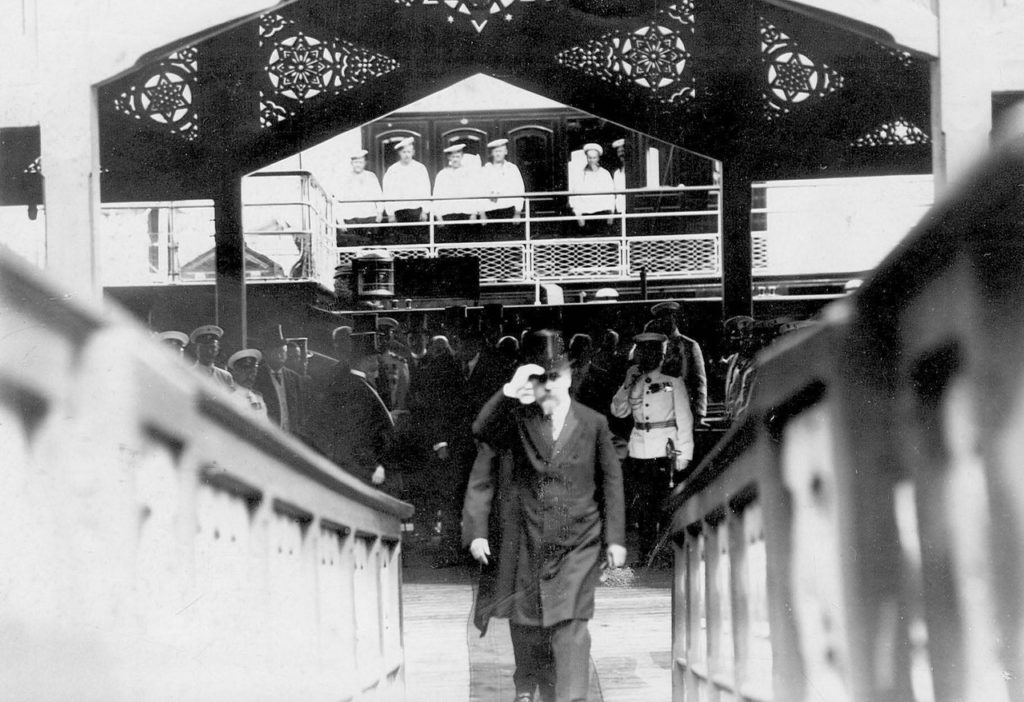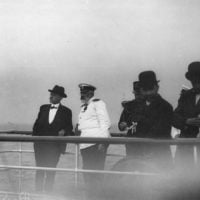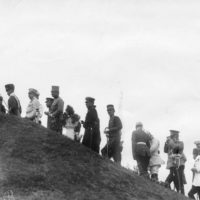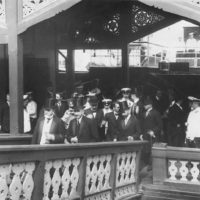
Related

French Cruiser with French President Raymond Poincare in July 1912, St. Petersburg.

Visit of French President Raymond Poincare in July 1912, St. Petersburg.

Visit of French President Raymond Poincare in July 1912, St. Petersburg.

Visit of French President Raymond Poincare in July 1912, St. Petersburg.

Visit of French President Raymond Poincare in July 1912, St. Petersburg.

Russian sailors and French President Raymond Poincare

Embarkment of French President Raymond Poincare in July 1912, St. Petersburg.

French President Raymond Poincare with Russian officials

Visit of French President Raymond Poincare in July 1912, St. Petersburg.
French President Raymond Poincare embarks in St. Petersburg.
Summary
"M. Poincare, the French Prime Minister, arrived at Kronstadt on Friday week in the cruiser Conde' for a week's visit to Russia. M. Poincare is not only Prime Minister but Minister for Foreign Affairs. He is clear-headed, well versed in public affairs, and widely informed, and France is fortunate in her representative. On Sunday he was received by the Emperor, and political conversations took place between him and M. Kokovtsoff, the Russian Prime Minister, and M. Sazonoff, the Russian Minister for Foreign Affairs. In a statement to the Malin M. Sazonoff said that the visit was a " normal" event, as it was " logical " for the statesmen of the allied nations to have periodically the opportunity of exchanging opinions. He denied that the new Naval Convention between France and Russia had anything to do with a scheme for getting the Dardanelles opened to Russian ships." THE SPECTATOR - 17 AUGUST 1912 Визит президента Франции Раймона Пуанкаре в июле 1912. Пребывание в Петербурге.
During the 1890s, Russia's foreign policy moved away from Germany and toward France. After Bismarck lost office, there was no renewal of the Reinsurance treaty between Russia and Germany. The German bankers stopped lending to Russia, which increasingly depended on Paris banks. Russia left Bismarck's Three Emperors' League (with Germany and Austria) and instead took up the French proposal for closer relationships and a military alliance. Russia felt humiliated after Austria and Germany prevented it from helping Serbia. The Anglo-Russian Entente and the Anglo-Russian Convention of 1907 made both countries part of the Triple Entente. Both Britain and Russia were then part of the subsequent alliance against the Central Powers in the First World War.
